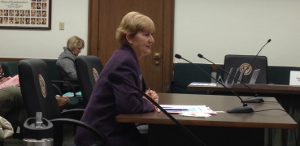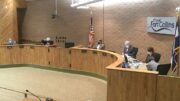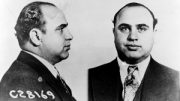By Jeffrey A. Roberts
CFOIC Executive Director
A perception that some school boards are abusing executive sessions prompted committee passage Monday of a bill in the state legislature aimed at giving the public more information to ascertain whether a closed-door meeting might violate Colorado’s Sunshine Law.
HB 14-1110, sponsored by Rep. Cherylin Peniston, D-Westminster, passed the House Education Committee on a 7-6 party-line vote. A majority of panel members are Democrats.
The bill would add requirements for keeping minutes of school board executive sessions. It also would mandate the electronic recording of portions of school board executive sessions that currently are not recorded because a board’s attorney believes the discussion involves privileged material.
“The abuse of executive sessions breeds distrust of school boards and government in general,” testified Lori Goldstein, a middle-school teacher in the Adams 12 School District. “Taxpayers should be able to hold school board members and their processes accountable. This accountability cannot be done without transparency. Far too often school boards abuse the privilege of holding an executive session to avoid such transparency.”
Peniston said her bill is not “targeted to a particular school board,” but questions about school board secrecy have come up recently in Douglas County, Jefferson County and other districts.
Current law requires that minutes of school board executive sessions reflect the topic of discussion. Under HB 14-1110, the minutes also would have to list the amount of time spent discussing each topic, and school boards would have to electronically record discussions during which attorney-client privilege is claimed. They also would be required to maintain a log of topics addressed during those privileged discussions.
Citizens who suspect the process has been misused could ask a judge to review the minutes and recordings.
Opponents of the bill said they are concerned that having to record all executive-session discussions would chill a school board’s ability to talk candidly with an attorney about certain confidential matters.
“I have to be frank and honest with my client,” said Sonja McKenzie, general counsel for the Cherry Creek School District. “That means when I go into executive session with my client I tell them the good, the bad and the ugly. I want to be able to have those conversations without fear that an opponent or someone that might use that information to my client’s detriment (has) access to that information.”
David Olson, general counsel with the Colorado School Districts Self Insurance Pool, said there are only a few school board attorneys in the state “and we take what we do very seriously.” These attorneys, he noted, could jeopardize their law licenses if they advise school board members to meet secretly when it’s not allowed.
But if an executive session isn’t recorded, asked Rep. Lois Court, D-Denver, “how would we know that you did it wrong?”
“Good point,” Olson answered. “But you have to understand that I took an oath that was administered by the chief justice of the Colorado Supreme Court.”
Follow the Colorado Freedom of Information Coalition on Twitter @CoFOIC. Like CFOIC’s Facebook page. Do you appreciate the information and resources provided by CFOIC? Please consider making a tax-deductible donation.





